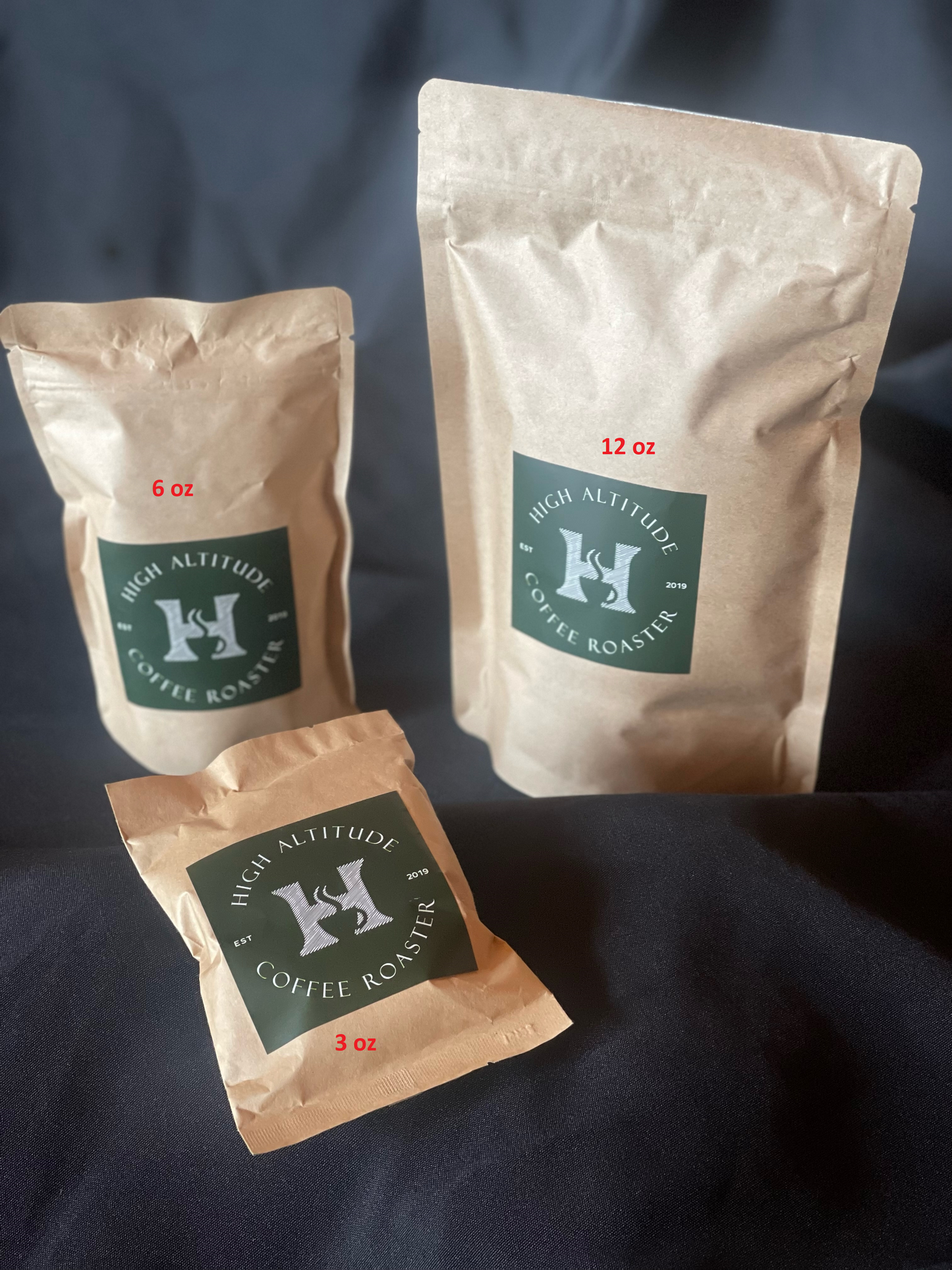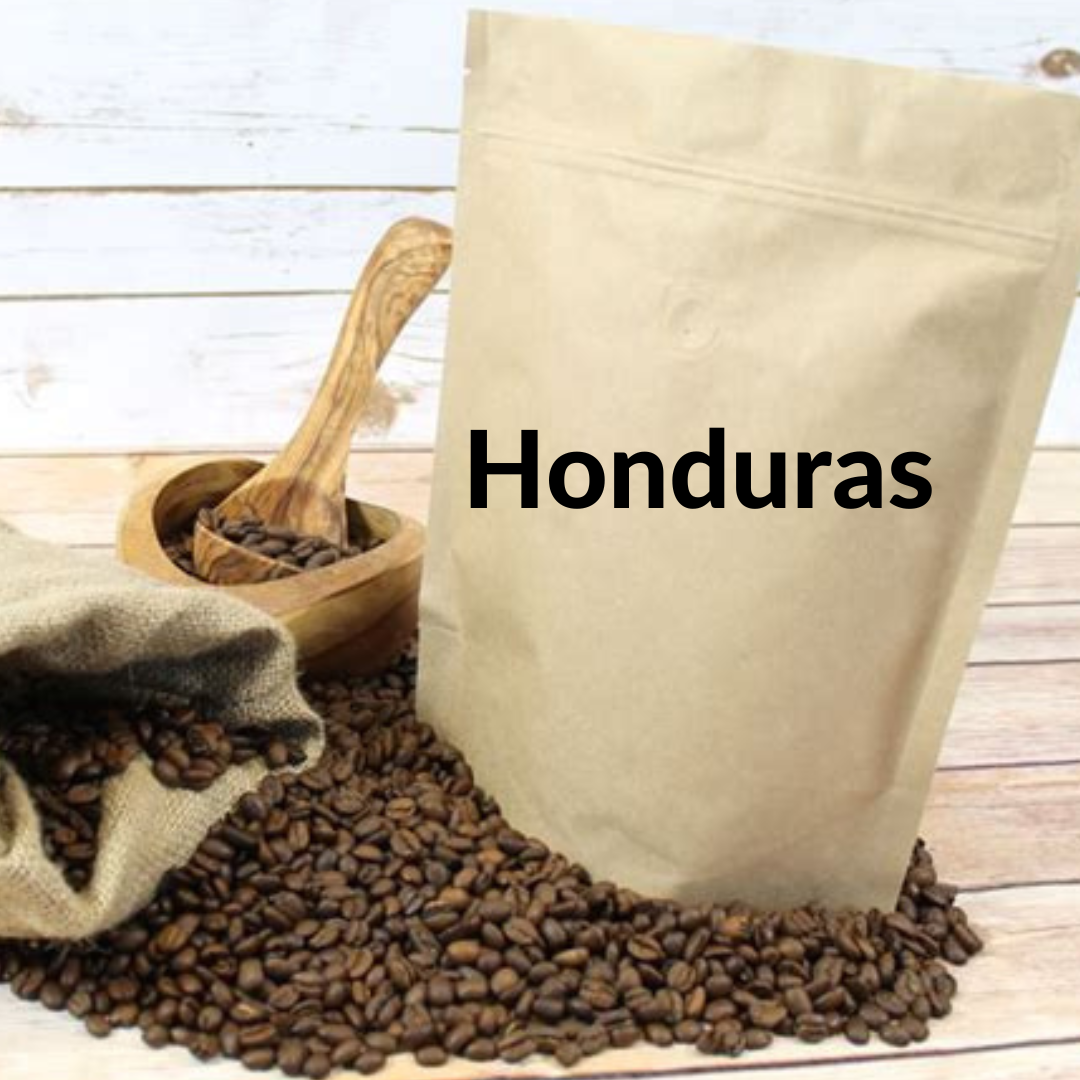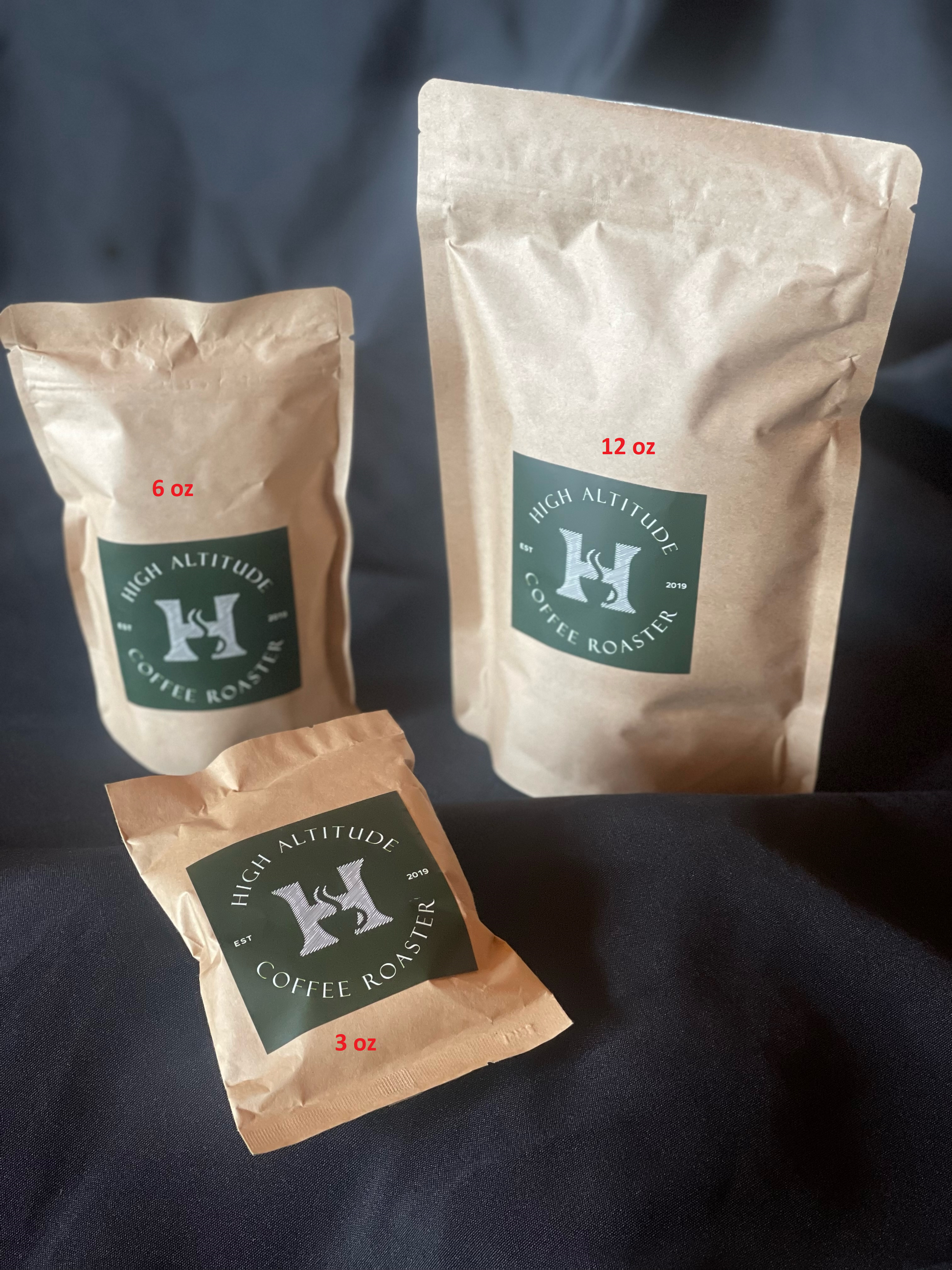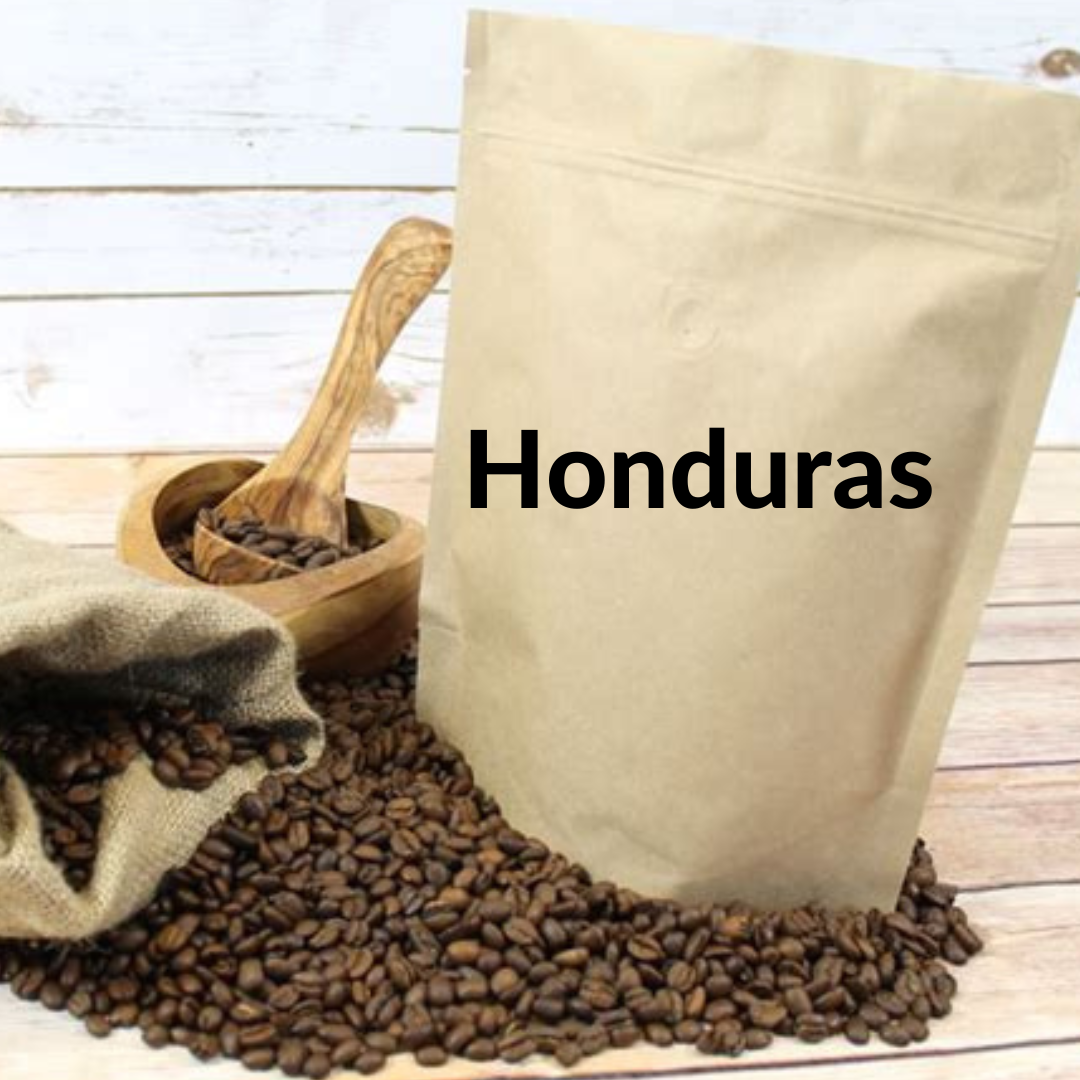HighAltitudeCoffeeRoaster
Honduras
Honduras
Couldn't load pickup availability
- Growing Altitude: 1100 - 1650 meters above sea level
- Arabica Variety: Bourbon, Caturra, Typica, Catuai, Pacas
- Harvest Period: November - April
- Milling Process: Washed, Patio Dried
- Aroma: Vanilla, Hazelnut
- Flavor: City, Chocolatey, Nutty
- Body: Round, Medium
- Acidity: Soft and Balanced
![]() Honduras is located in Central America and is bordered by the Caribbean Sea to the north and the Pacific Ocean to the south. The country's population is just over 9 million. In the mountains, the climate is more temperate; in the lowlands, the weather tends to be tropical. Honduras's geography includes hills, valleys, coast, and jungle—coffee beans are grown in all these areas.
Honduras is located in Central America and is bordered by the Caribbean Sea to the north and the Pacific Ocean to the south. The country's population is just over 9 million. In the mountains, the climate is more temperate; in the lowlands, the weather tends to be tropical. Honduras's geography includes hills, valleys, coast, and jungle—coffee beans are grown in all these areas.
Honduran coffee beans have a full body and a sweetish, soft profile. Previously, Honduran coffee beans were considered a second-class product and was used mainly for creating blends.
The quality directly depends on the elevation at which the coffee is grown—mineral notes are clearly tasted in coffee grown at the highest plantations. The best varieties are grown in the shade of other trees, and different plants are mixed on plantations so the coffee absorbs the aromas of tropical fruits and flowers.
The overall profile is balanced and sweetish, with hints of vanilla. However, the main characteristic of local coffee products is diversity, due to the many climatic zones, soils, and other environmental conditions found in Honduras
Honduran coffee-growing regions and corresponding flavor descriptors:
- Copan — Balanced body, chocolatey flavor, citrus and caramel notes, creamy texture.
- Opalaca — Balanced body. The bouquet is dominated by fruit tones.
- Montecillos — Sweet fruity aroma, distinct acidity, notes of peach, apricot, and orange. The acidic profile is clearly felt.
- Comayagua — The coffee is similar to beans from Montecillos, with the same acidity and fruity aromas. The brewed coffee has a velvety structure and a complex bouquet with notes of peach, mango, jasmine, apricot, lime, honey, black currant, melon, guava, hibiscus, raspberry, white grape, and mint.
- Agalta — The bouquet has fruity and caramel aromas; the taste has chocolate-caramel notes and a sweetish aftertaste. Local coffee is distinguished by a pronounced acidity and a sweetish finish.
- El Paraiso — Balanced sweet citrus flavor and aroma, distinct acidity, soft body. The bouquet reveals tones of green apple, jasmine, peach, and white wine.
Share


-
Spend $65 and get Free Shipping
All orders are shipped within two days the coffee order is roasted.
When ordering/requesting a single origin coffee that is in limited supply we will only roast it once a week.
Our
shippers require phone numbers for both the billing and shipping
addresses. This information is private and you will not be solicited.
More information is available by viewing our Privacy PolicyFlat-Rate
shipping is $5 (FREE on orders over $65), anywhere in the continental
lower 48 United States. This price is our cost as billed by the shipping
service provider, there are no additional handling fees included. -

Elevate your coffee experience one sip at a time.



